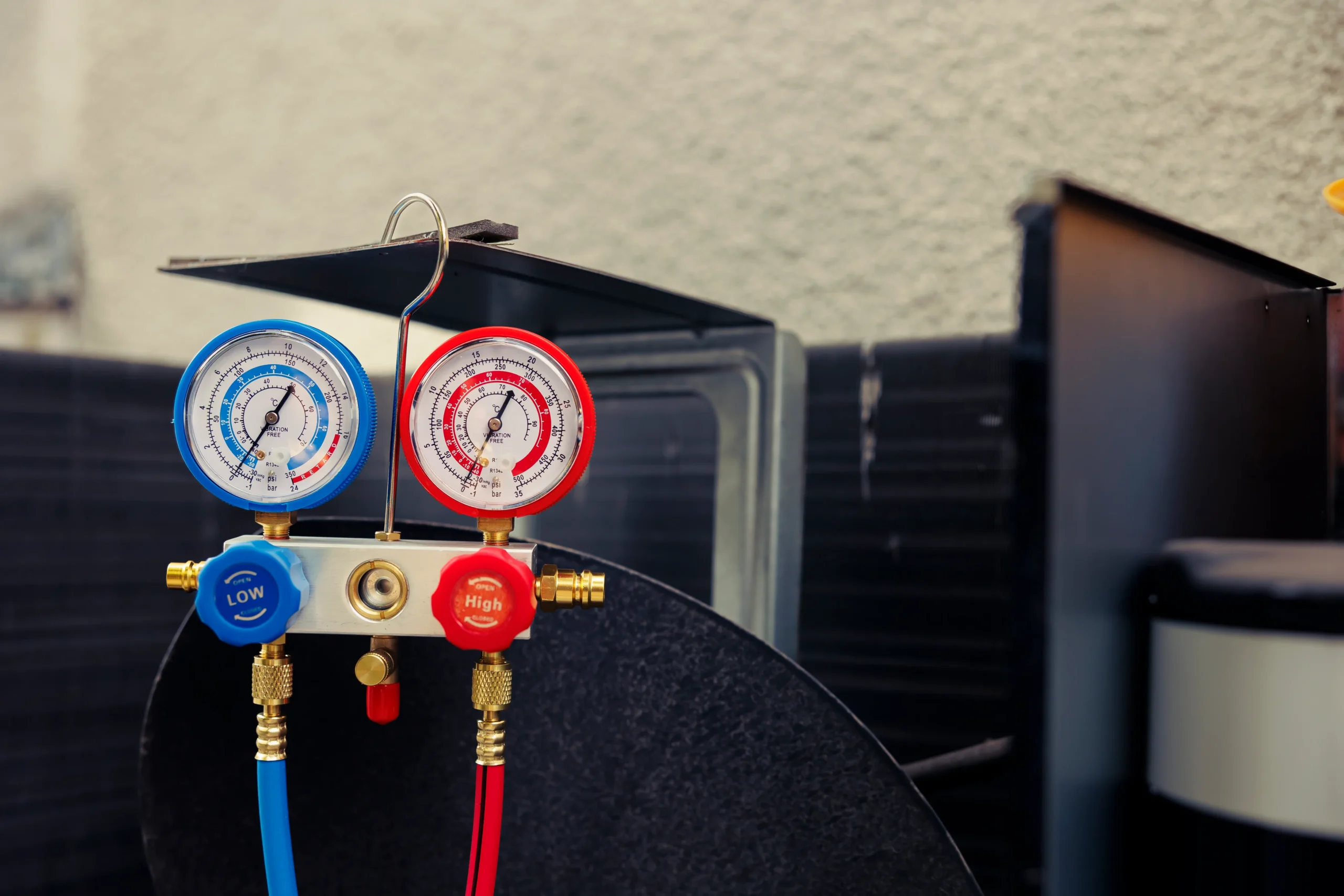Introduction: What is the Nissan K24 Propane Carburetor parts ?
The Nissan K24 engine, originally designed to run on gasoline, can be converted to run on propane, which offers cleaner emissions and lower fuel costs. To make this conversion work, a Nissan K24 propane carburetor system is required. This system includes essential parts that ensure the engine runs smoothly and efficiently when powered by propane instead of gasoline.
The propane carburetor system for the Nissan K24 includes components like the propane fuel tank, vaporizer, fuel lock-off valve, and the mixer (carburetor). These parts are critical in regulating the flow of propane, ensuring the engine gets the right mixture of fuel and air for optimal performance.
Key Components of the Nissan K24 Propane carburetor parts
When converting your Nissan K24 to propane, several key components come into play. Understanding these parts and their functions is crucial for a successful conversion.
1. Propane Fuel Tank
The propane fuel tank is the heart of the conversion. It stores propane in a liquid state under high pressure, ensuring a steady and reliable fuel supply to the engine. The tank is typically installed in a secure location within the vehicle and is equipped with a safety valve to prevent overpressure.
2. Vaporizer/Regulator
The vaporizer/regulator plays a vital role in converting the liquid propane into gas, which can then be burned in the engine. This component ensures that the propane is delivered at the correct pressure and in a gaseous state, allowing the engine to run smoothly.
3. Fuel Lock-Off Valve
The fuel lock-off valve prevents propane from flowing into the engine when the system is not in use. This safety feature is activated by a vacuum or an electronic signal, ensuring the fuel system is only active when necessary.
4. Mixer (Carburetor)
The mixer is responsible for blending the propane gas with air to create a combustible mixture. This mixture is vital for efficient combustion in the engine, ensuring that the engine performs at its best while using propane.
5. Fuel Lines and Hoses
The fuel lines and hoses are responsible for transporting propane from the fuel tank to the engine. These components are made from high-pressure resistant materials, ensuring that the propane is delivered safely and without leakage.
6. Ignition System
The ignition system is responsible for igniting the propane-air mixture to start the engine. It includes spark plugs, ignition coils, and other components that need to be in top condition to ensure proper combustion and engine performance.
How to Convert the Nissan K24 to Propane carburetor parts
Converting your Nissan K24 engine to run on propane is a step-by-step process that involves several key components. Below is a general guide on how to complete the conversion successfully.
1. Preparing the Engine for Conversion
Before you begin the conversion, it’s essential to ensure that your engine is in good working condition. Check the compression levels, inspect the spark plugs, and ensure that the valves and timing belt are in proper shape. If any components need attention, it’s best to address them before proceeding with the conversion.
2. Installing the Propane Carburetor System
Once your engine is prepared, the next step is to install the propane carburetor system. This involves mounting the carburetor on the intake manifold and connecting the various components, including the fuel lines, vaporizer, and ignition system. The carburetor must be properly aligned and secured to avoid any fuel or air mixture problems.
3. Modifying the Fuel Tank Location
The propane fuel tank must be mounted in a safe and secure location, such as the bed of a truck or under the chassis. The tank should be positioned to allow for easy refueling and proper venting. Ensure that the tank is mounted away from heat sources to avoid potential issues.
4. Tuning the Engine
Once the carburetor system is installed, you will need to adjust the ignition timing and fuel mixture for optimal performance with propane. Propane burns differently than gasoline, so fine-tuning the engine is essential for achieving maximum efficiency. You may need to advance the ignition timing by 2–4 degrees for better combustion.
Performance and Efficiency of Nissan K24 with Propane carburetor parts
Running your Nissan K24 on propane offers several advantages, both in terms of performance and fuel efficiency. Here’s a closer look at how propane affects engine performance:
1. Lower Emissions
One of the primary benefits of converting to propane is the reduction in harmful emissions. Propane produces fewer greenhouse gases and particulates compared to gasoline, making it an environmentally friendly choice. This reduction in emissions can help you meet environmental standards and contribute to cleaner air.
2. Cost Savings
Propane is often less expensive than gasoline, and the conversion to propane can lead to significant fuel savings. In many areas, propane is priced 30–50% lower than gasoline, which makes it an attractive option for those who drive frequently or manage a fleet of vehicles.
3. Extended Engine Life
Propane burns cleaner than gasoline, which results in less carbon buildup and wear on engine components. This means that your Nissan K24 engine will experience fewer maintenance issues and last longer, saving you money on repairs and replacements over time.
4. Improved Performance
While propane may slightly reduce horsepower compared to gasoline, the engine’s performance will still be impressive, especially when paired with the right propane carburetor parts. The engine will run smoother, with fewer vibrations and less noise compared to when it runs on gasoline.
Common Issues with Nissan K24 Propane Systems
Like any fuel conversion, there can be challenges when running a Nissan K24 on propane. Here are some common issues you may encounter and how to fix them:
1. Starting Problems
If your engine struggles to start, especially in cold weather, the issue may be with the vaporizer. Cold temperatures can prevent propane from vaporizing properly, making it difficult for the engine to start. Using a block heater or warming the engine area can help resolve this issue.
2. Fuel Starvation
If your engine stalls or runs lean, the issue may be with the fuel lines or the lock-off valve. Inspect the fuel lines for leaks or blockages and ensure the valve is operating correctly. Replacing damaged lines and ensuring proper valve function will resolve this issue.
3. Misfires
Rough engine performance, particularly under load, can be a sign of a faulty ignition system. Check the spark plugs and ignition coils, as they may wear out faster due to the hotter combustion of propane. Replacing worn ignition components should improve engine performance.
Maintenance and Troubleshooting for Nissan K24 Propane carburetor parts
Proper maintenance is key to keeping your Nissan K24 propane carburetor parts Here are some essential tips for maintaining your propane-powered vehicle:
1. Regular Inspections
Inspect the propane system regularly for leaks, cracks, or corrosion. Ensure the vaporizer is functioning correctly and that the fuel lines are in good condition. Regular maintenance will prevent costly repairs and extend the life of the engine.
2. Carburetor Cleaning
Periodically clean the propane carburetor to ensure optimal fuel-air mixture and performance. A clean carburetor ensures the engine runs efficiently, reducing the risk of misfires or fuel starvation.
3. Ignition System Monitoring
Check the ignition system regularly, including the spark plugs and ignition coils. Ensure the ignition timing remains properly calibrated to suit propane combustion.
FAQs
1. Can I convert my Nissan K24 propane carburetor parts ?
Yes, the Nissan K24 engine can be converted to run on propane using the appropriate propane carburetor system and conversion kit.
2. Is propane safe for the Nissan K24 propane carburetor parts ?
When converted correctly, propane is safe for the Nissan K24 engine. Ensure that all parts are installed properly, and the system is regularly maintained to avoid potential issues.
3. How often should I service my propane system?
It’s recommended to service the propane system every 3,000 miles or as per the manufacturer’s guidelines. Regular maintenance ensures the system operates efficiently and safely.
4. What are the benefits of using propane in my Nissan K24 ?
Running your Nissan K24 on propane offers benefits such as lower emissions, cost savings, extended engine life, and improved performance. Propane also burns cleaner than gasoline, reducing maintenance costs over time.
Conclusion: Why Choose Nissan K24 Propane Carburetor Parts?
Converting your Nissan K24 engine to propane offers numerous benefits, from environmental advantages to significant cost savings. With the right Nissan K24 propane carburetor parts, you can ensure that your engine runs efficiently and reliably, helping you reduce your carbon footprint and fuel expenses. Regular maintenance and troubleshooting will keep your propane system functioning smoothly, ensuring that your Nissan K24 continues to perform at its best for years to come.


